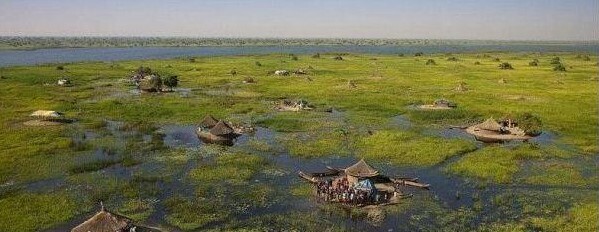South Sudan government said on Tuesday that about 2.6 million people had been affected by heavy floods in the last four years.
The Rapid Flood Assessment Report released Tuesday by the Relief and Rehabilitation Commission (RRC) said the worst floods to hit the country in decades have destroyed livestock, farmlands, infrastructure, and homes across ten states and three administrative areas.
The report conducted by RRC between October and November 2022, funded by the United Nations Development Programmes (UNDP) said the worst affected states include Jonglei with 406,021 people, Unity with 422,160, Northern Bahr el Ghazal with 451,722, and Warrap with 380,004 ad others.
Speaking during the launch of the report on Tuesday in Juba, Dr. Manase Lomole Waya, Chairperson for Relief and Rehabilitation Commission, said the flood has impacted large parts of the country with implications for peace and security.
“The number of people that have identified as having been affected by floods in this report is 2,632,960 people in ten states and three administrative areas,” said Lomole.
He said the floods inflicted substantial damage on the infrastructure and livelihood of the people.
“This is causing distress among the people and to address the problem in short term and long term, relocation of residents living in a low land is an important solution to tackle this problem and this has to be done with the help of the government and the communities that have been affected and also we would need the support of the international community,” Lomole said.
“These natural hazards have caused social, economic, political, and infrastructural challenges. We will try to work together to see how best we can contribute individually and collectively in ensuring that problems caused are minimized, mitigated and where possible resolved,” he added.
Titus Osundina, Resident Representative of UNDP South Sudan, said floods that occurred from 2019 to 2022 have caused humanitarian emergencies and undermined humanitarian and development efforts.
“Annual seasonal flooding that impacted all the ten states and three administrative areas from 2019 to 2022 resorted to humanitarian emergency and undermined humanitarian and development efforts,” said Titus.
“We strongly want to move from humanitarian to development but this catastrophe and the rest of them keep on hindering us to be able to move forward, but we will continue to do our best,” he added.
On 14 Aug. 2022, President Salva Kiir declared a state of emergency in flood-affected regions in the eastern part of the country, which has also been ravaged by inter-communal conflicts over the years.




